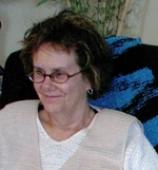Vote in Our Poll
Are you planning to give books as gifts this holiday season? Please check all that apply.
Word of Mouth
Tell us about the books you’ve finished reading with your comments and a rating of 1 to 5 stars. During the contest period from December 5th to December 19th at noon ET, three lucky readers each will be randomly chosen to win a copy of THE AWARD by Matthew Pearl and THE HEIR APPARENT by Rebecca Armitage.
A Note from Carol
Our major goal for 2025 is to redesign Bookreporter and the rest of the sites in The Book Report Network. How can you help? We have launched a GoFundMe campaign and are asking for donations. Any level of donation that you would be comfortable with is sincerely appreciated. If you would prefer donating via check, please send to:
The Book Report, Inc.
16 Mt. Bethel Road, Suite 365
Warren, NJ 07059
Click here to read more about our plans and to donate.
Coming Soon
Curious about what books will be released in the months ahead so you can pre-order or reserve them? Then click on the months below.
Bookreporter.com Bets On
New in Paperback
The following are lists of new paperback releases that we think will be of interest to you.
Books On Screen
Reading Group Guides
The Black Wolf by Louise Penny
Cursed Daughters by Oyinkan Braithwaite
Joyride: A Memoir by Susan Orlean
Last Call at the Savoy by Brisa Carleton
Like Family by Erin O. White
The Missing Pages by Alyson Richman
Mona's Eyes written by Thomas Schlesser, translated by Hildegarde Serle
Queen Esther by John Irving
Some Bright Nowhere by Ann Packer
The Ten Year Affair by Erin Somers
Under the Stars by Beatriz Williams
Wreck by Catherine Newman
Cursed Daughters by Oyinkan Braithwaite
Joyride: A Memoir by Susan Orlean
Last Call at the Savoy by Brisa Carleton
Like Family by Erin O. White
The Missing Pages by Alyson Richman
Mona's Eyes written by Thomas Schlesser, translated by Hildegarde Serle
Queen Esther by John Irving
Some Bright Nowhere by Ann Packer
The Ten Year Affair by Erin Somers
Under the Stars by Beatriz Williams
Wreck by Catherine Newman
Copyright © 2025 The Book Report, Inc. All Rights Reserved.













